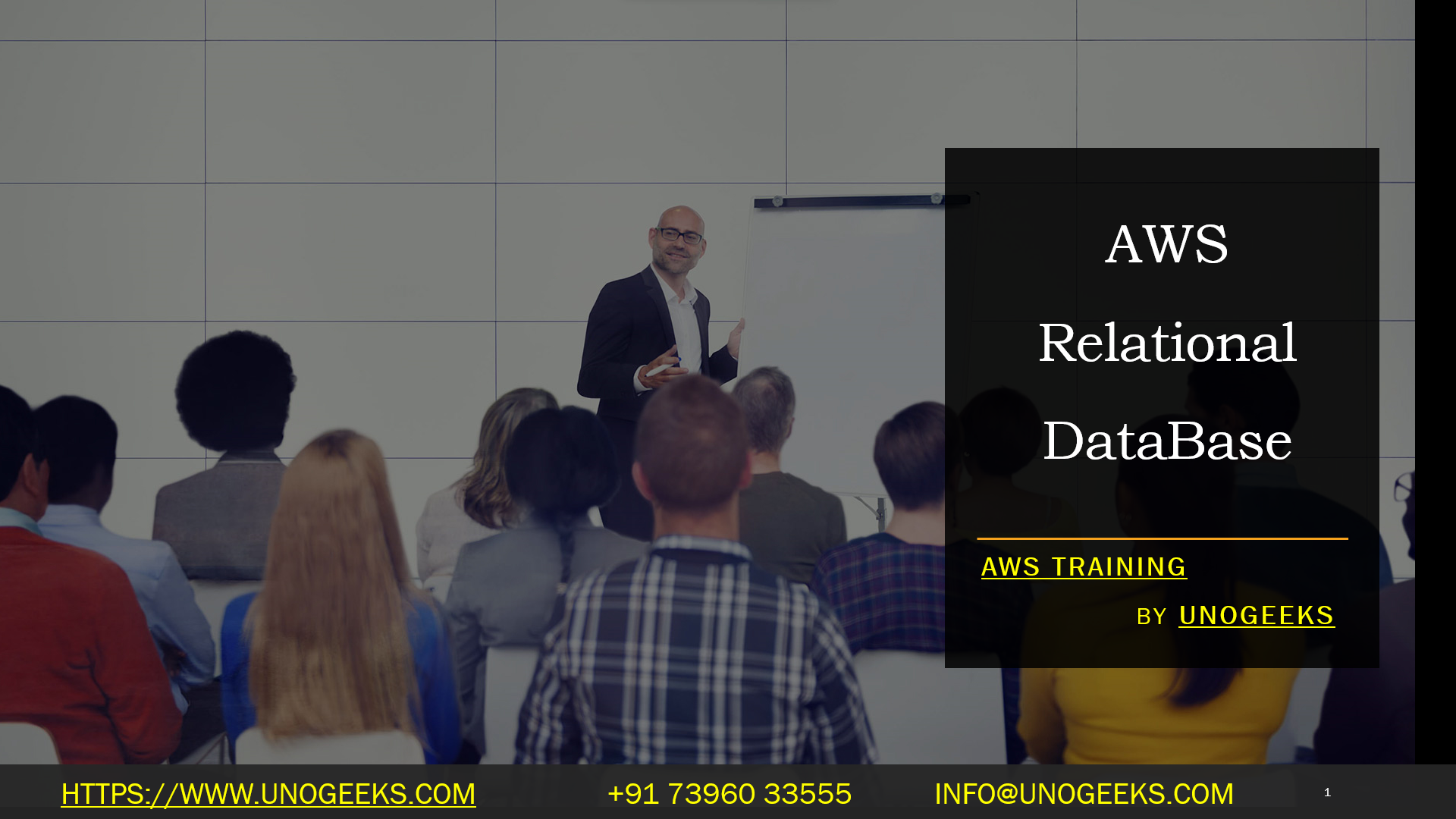AWS Relational DataBase
Amazon Web Services (AWS) provides several relational database services. These services offer managed database solutions that are scalable, highly available, and secure, allowing you to focus on your application’s development without worrying about database infrastructure management.
The key AWS relational database services include:
1. Amazon RDS (Relational Database Service): This service provides managed database instances for popular relational database engines like Amazon Aurora, PostgreSQL, MySQL, MariaDB, Oracle Database, and Microsoft SQL Server. RDS handles routine database tasks such as provisioning, patching, backup, recovery, and scaling, making it easier for developers to deploy and manage relational databases in the cloud.
2. Amazon Aurora: Amazon Aurora is a MySQL and PostgreSQL-compatible relational database engine that is designed for high performance, scalability, and availability. It offers features like automatic backups, point-in-time recovery, and read replicas to enhance the reliability of the database.
3. Amazon DynamoDB: While not a traditional relational database, DynamoDB is a managed NoSQL database that provides seamless scalability, low-latency performance, and automated data replication across multiple AWS regions. It’s an excellent option for applications that require a key-value and document database model.
4. Amazon Redshift: Redshift is a fully managed data warehouse service designed for online analytical processing (OLAP) workloads. It allows you to run complex queries on large datasets and is optimized for high-performance data analytics.
5. Amazon Neptune: This service offers a fully managed graph database that allows you to build and run applications that work with highly connected datasets, such as social networking applications or recommendation engines.
6. Amazon DocumentDB: Amazon DocumentDB is a fully managed NoSQL document database service that is compatible with MongoDB. It provides the scalability and availability of MongoDB without the operational overhead.
Each of these services comes with its unique features, pricing models, and performance characteristics, so it’s essential to understand your application requirements before choosing the right AWS relational database service for your project. As the cloud computing landscape is continually evolving, I recommend checking the official AWS website or documentation for the latest information on their database offerings.
Demo Day 1 Video:
Conclusion:
Unogeeks is the No.1 IT Training Institute for Amazon Web Services (AWS) Training. Anyone Disagree? Please drop in a comment
You can check out our other latest blogs on Amazon Web Services (AWS) Training here – AWS Blogs
You can check out our Best In Class Amazon Web Services (AWS) Training Details here – AWS Training

———————————-
For Training inquiries:
Call/Whatsapp: +91 73960 33555
Mail us at: info@unogeeks.com
Our Website ➜ https://unogeeks.com
Follow us:
Instagram: https://www.instagram.com/unogeeks
Facebook:https://www.facebook.com/UnogeeksSoftwareTrainingInstitute
Twitter: https://twitter.com/unogeeks
